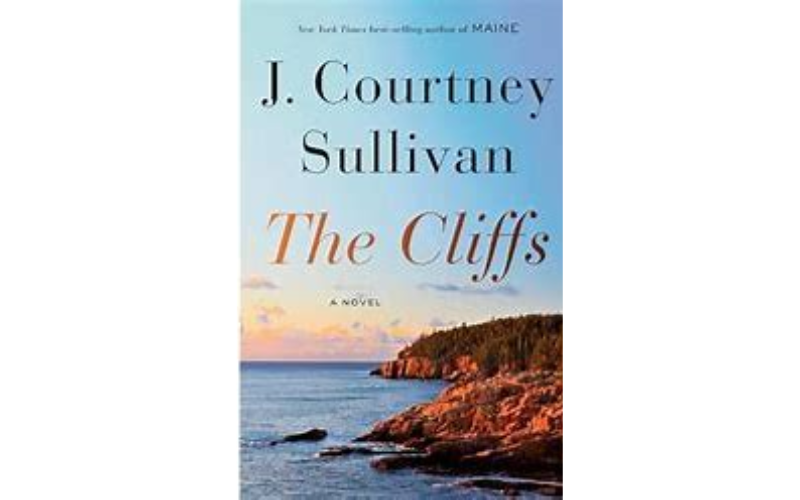The Book of Witching
- Ashleigh Walker

- Dec 22, 2024
- 4 min read
By C J Cooke


Genre
Historical Fantasy Thriller
Book Summary
In The Book of Witching, C.J. Cooke masterfully intertwines the dark legacy of witch trials with the haunting consequences they leave behind in the present day. The story unfolds on the Isle of Orkney, a remote Scottish island steeped in folklore and tragedy, where a centuries-old curse still lingers.
When modern day protagonist Erin is found unconscious after a tragic hiking trip—leaving her boyfriend dead and her best friend missing—Clem’s (Erin's Mother) world is upended. Erin awakens, claiming to be someone named Nyx, and rejects her identity, fueling Clem’s quest for answers.
Clem travels to the site of the accident on the Orkneys, trying to make sense of what happened to her daughter and unravel the island's chilling past. Four centuries earlier, a woman, Alison Balfour, was accused of witchcraft and murder, setting the stage for a curse that may still haunt the area. The book explores the collision of these timelines, revealing how unresolved historical injustices seep into the present.
As Clem digs deeper, she confronts the eerie question of whether Erin’s strange behavior stems from psychological trauma or the lingering effects of an ancient curse. Clem discovers an ancient spellbook that reveals harrowing truths about her family’s connection to the witch trials. The narrative alternates between past and present, uncovering the injustices faced by women accused of witchcraft and the sinister forces that have plagued Orkney for generations.
The book's themes of resilience and the fight against societal condemnation resonate across the eras, making it a compelling exploration of history’s impact on the present. Prepare for an atmospheric journey where the past and present collide in haunting, unforgettable ways.
Book Club Questions
The Book of Witching draws heavily on the historical witch trials and persecution during the early modern period. How does the novel’s depiction of these events challenge or reinforce your understanding of the historical narratives surrounding witchcraft? Are there parallels in contemporary society that reflect similar themes of fear and scapegoating?
Historically, accusations of witchcraft often targeted women who defied societal norms. How are power and gender explored through its characters? Do the female protagonists' struggles resonate with or critique modern feminist movements, and what can we learn about how power structures are maintained or dismantled?
The book intertwines historical fact with mythical elements, such as spells, rituals, and supernatural forces. How does this blending affect your perception of historical truth? Do you think myth and folklore distort history, or do they provide a deeper understanding of the cultural psyche of the time?
In historical witch trials, the concept of justice was often perverted by fear and superstition. How does The Book of Witching handle the theme of justice, both historically and in its fictional elements? Are the moral choices made by the characters justified, and how do they reflect on our own justice systems?
Many historical events, like witch trials, have left a legacy of fear, mistrust, and trauma. How does The Book of Witching portray the impact of generational trauma on its characters and communities? Do you think this portrayal offers a path toward healing, or does it serve as a cautionary tale about the lingering effects of historical injustices?
Justice is a word they wield like a blade, sharp only for those who dare to stand tall. But vengeance—vengeance is the fire that burns in the hearts of those they tried to silence.
My Opinion
The Book of Witching was an insightful and transformative read, shedding light on the history of the witch trials and the enduring ripple effects of ancestral trauma. It offered a profound perspective on how the scars of historical injustices, particularly those targeting women, continue to shape our world today. Inspired by the vivid storytelling, I felt compelled to visit Salem, MA, to delve deeper into the history of the witch trials and connect with the stories of those who faced unimaginable persecution. The novel also illuminated the insidious power of cults, drawing parallels to their role in modern society. It was chilling to see how they often appear sincere, offering a sense of belonging and purpose, yet prey on the weak, lost, and hopeless, creating cycles of manipulation through false hope and direction. Ultimately, The Book of Witching deepened my understanding of history while fostering a powerful connection to my womanhood and the resilience of those who came before us. I loved every page and walked away with not only knowledge but a renewed sense of self.
To survive is not enough. Survival is the spark. To thrive, to reclaim what was taken, to build anew—that is the spell they fear the most.
Themes Found in The Idea of You
Power and Oppression
The novel delves into the dynamics of power—who holds it, how it is wielded, and the consequences for those who challenge it. Through the lens of the historical witch trials, it explores how fear of the "other" is weaponized to control marginalized groups, particularly women. This theme encourages readers to question how systemic oppression persists and evolves in contemporary society.
Generational Trauma and Healing
Ancestral trauma is a core thread in the narrative, showing how the pain and persecution of the past echo through generations. The characters grapple with the weight of inherited struggles while striving for empowerment and healing. This theme speaks to the enduring impact of history and the possibility of breaking cycles of pain to create a better future.
Belief and Manipulation
The novel examines the fine line between belief systems and the exploitation of faith, particularly through cults and societal norms. It portrays how groups can use the guise of righteousness to manipulate and prey on vulnerable individuals. This theme resonates with contemporary discussions about the power of ideology, community, and the dangers of blind allegiance.
Magic is not the sparks and shadows they write about in their fearful tales. Magic is the thread that binds the world together, unseen but unbreakable, woven by the hands of those who dare to believe.



Bình luận